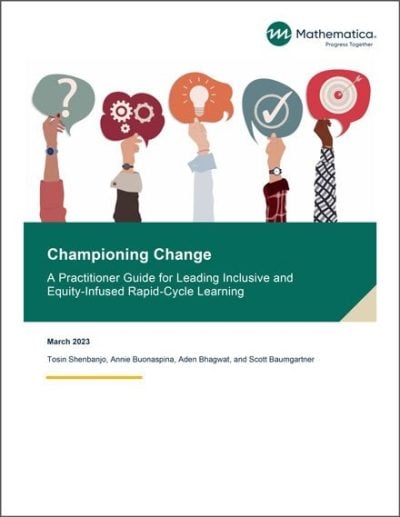Summary
Rapid-cycle learning — an iterative method of quickly testing strategies for program improvement — is a low-stakes approach to strengthening programs. It aids practitioners in piloting small scale strategies before implementing them program- or agency-wide.
Integrating Equity From the Start
However, for the process to be effective, equity principles must be integrated from the start. This early focus ensures that the people most affected by the program are also involved in shaping all aspects of the work. To help create a foundation of equity-infused learning — with full participation from all program participants and staff — practitioners should consider the following:
- forming a diverse advisory group for planning;
- prioritizing collaborative communication and documentation of the advisory group’s goals, expectations and norms;
- ensuring advisory group clarity on the components of equity-infused, rapid-cycle work;
- practicing proactive communication throughout the learning process;
- adopting strategies for addressing power imbalances;
- offering compensation for program participant contributions; and
- leveraging opportunities to foster a culture of learning, innovation and cultural responsiveness.
The Three Phases of Improvement
The first phase of an improvement effort focuses on understanding an organization’s readiness for change and identifying any challenges that could hinder progress.
In phase two, staff, clients and community partners work together to create strategies for improvement. These collaborators give weight to community-based expertise and elevate improvements that will do the most good for all.
The third phase involves testing solutions on a small scale — such as with a few staff members or in support of a few families — collecting and analyzing data about how the strategy worked and co-creating improvements for the strategy in an iterative process.
For each phase, the guide offers practical suggestions integrating equity principles into the process, building off the foundation established through the preliminary work. Examples from the case study accompany these suggestions to illustrate what a rapid-cycle learning process might look like in practice.







